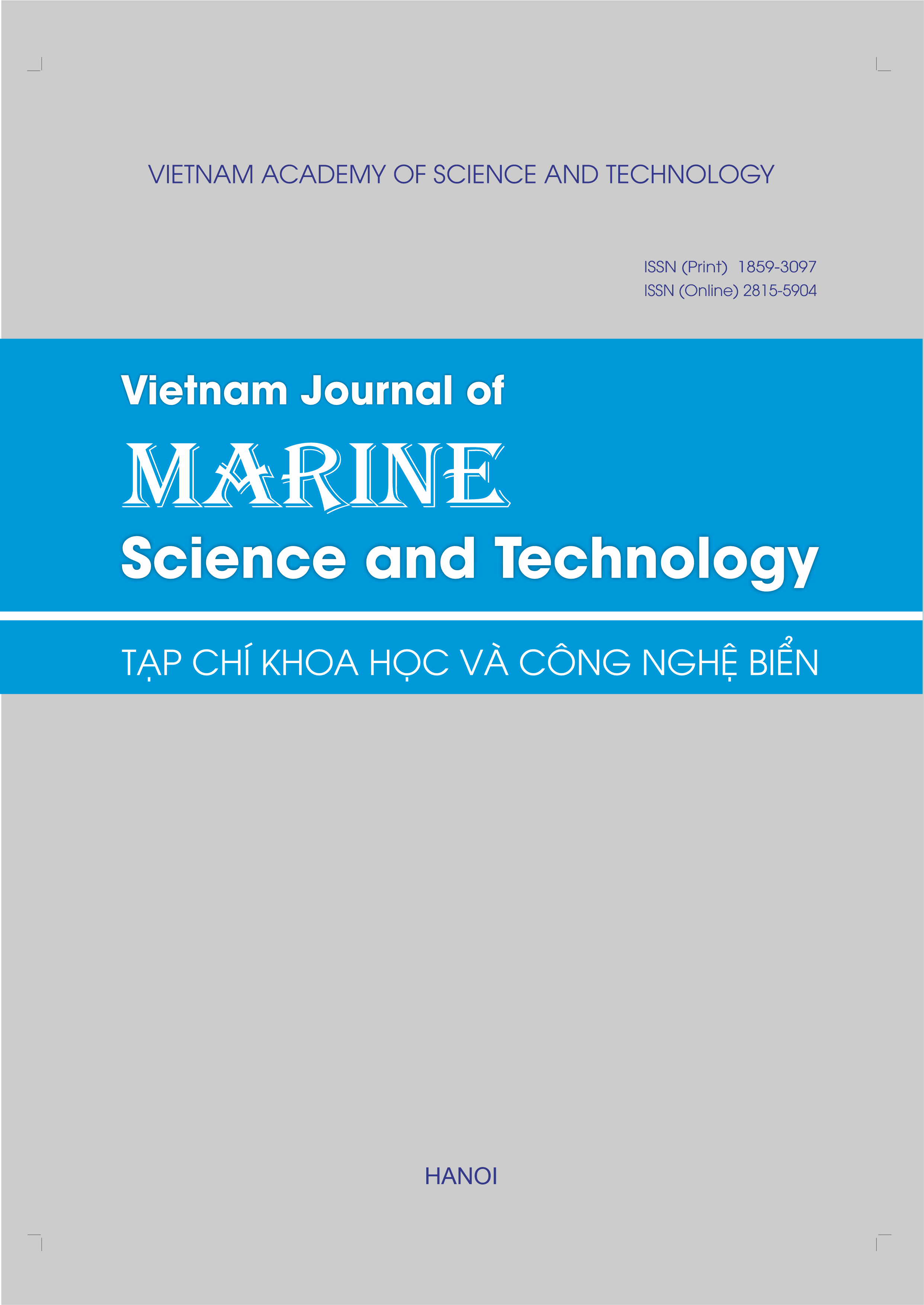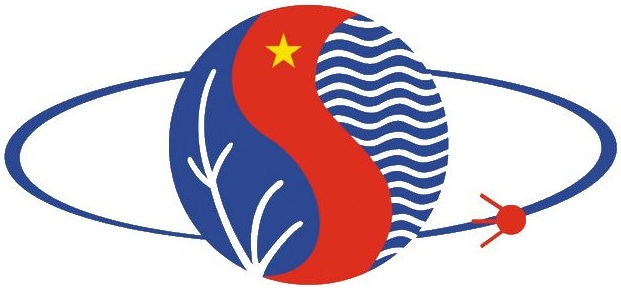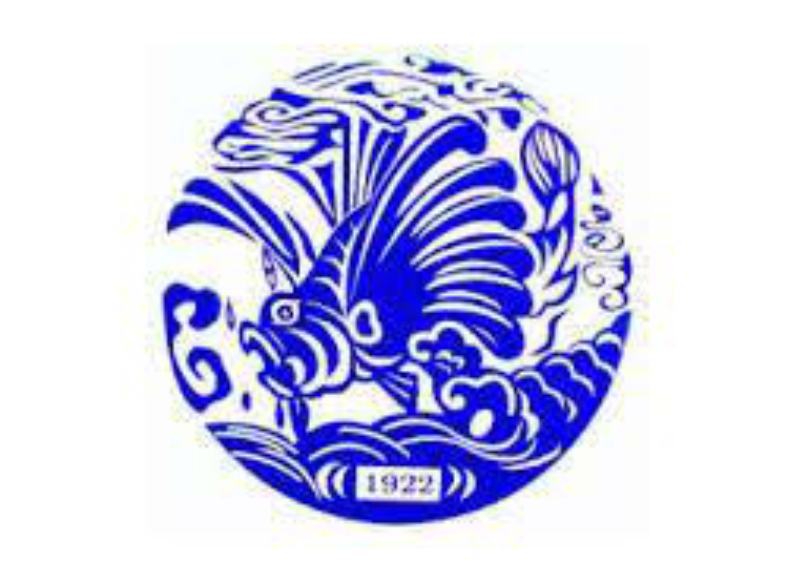Sponge’s biodiversity in the limestone islands in Vietnam sea
Author affiliations
DOI:
https://doi.org/10.15625/1859-3097/15307Keywords:
Sponges, limestone island, species, biomass.Abstract
In 2017, 2018 and 2020, sponge samples were collected at 41 points in the waters surrounding Vietnam’s coastal limestone islands (Bai Tu Long, Ha Long bay, Cat Ba and Ba Lua archipelago). Research results have identified 54 species belonging to 33 genera, 24 families of Demosponge class distributed in this area. Ha Long bay area has the highest number of species (53 species), followed by Cat Ba (46 species), Bai Tu Long 19 species; Ba Lua archipelago (Kien Giang) has the least number of species (3 species). Sponges are concentrated in coral reefs with the highest number of species (48 species) and the lowest in the mud and sand bottom (4 species). Biomass of sponges varies from 0.2–1.5 kg/m2. There are 11 sites with high biomass, which have the potential to become Vietnam’s medicinal drug area.
Downloads
References
Radu, V. G., and Radu, V. V., 1972. Zoologia nevertebratelor. Editura Didactică şi Pedagogică.
Hooper, J. N., van Soest, R. W. M., and Willenz, P., 2002. Systema Porifera. http://www.wkap.nl/.
Tastsuo Higa et al., 2001. Chemical Diversity of Coral Reef Organism. Springer Science + Business media, LLC.
Kiem, P. V., Nhiem, N. X., Tai, B. H., Anh, T. H., Hang, D. T., Cuc, N. T., Huyen Le, T., Nam, N. H., Yen, P. H., Thung Do, C., and Minh, C. V., 2016. Bis-sesquiterpene from the Marine Sponge Dysidea fragilis. Natural product communications, 11(4), 439–441.
Duckworth, A., 2009. Farming sponges to supply bioactive metabolites and bath sponges: A review. Marine Biotechnology, 11(6), 669–679. Doi: 10.1007/s10126-009-9213-2.
Calcinai, B., Azzini, F., Bavestrello, G., Cerrano, C., Pansini, M., and Thung, D. C., 2006. Boring Sponges from Ha Long bay, Tonkin Gulf, Vietnam. Zoological Studies, 45(2), 201–212.
Cerrano, C., Azzini, F., Bavestrello, G., Calcinai, B., Pansini, M., Sarti, M., and Thung, D. (2006). Marine lakes of karst islands in Ha Long bay (Vietnam). Chemistry and Ecology, 22(6), 489–500. https://doi.org/10.1080/02757540601024835.
Do Cong Thung, Tran Manh Ha, Le Thi Thuy, Carlos de Eguilior, Aimara Martinez Rodriguier, 2014. Results of biodiversity survey in Hai Mien (Sponge) in Nha Trang bay. Proceedings of the 2nd National Scientific Conference on Marine Biology and Sustainable Development. Publishing House for Science and Technology, Hanoi. (in Vietnamese).
Lévi, C., 1961. Eponges Intercoditales de Nha Trang (Viet Nam). Archives de Zoologie expérimentale et générale, 100(2), 127–148.
Tran My Linh, Nguyen Chi Mai, Le Quynh Lien, Le Quang Trung, Vu Huong Giang, Phan MinhTuan, Dam Duc Tien, Nguyen Tuong Van, Ninh Khac Ban, Phan Van Kiem, Chau Van Minh, 2016. Phylogenetic variation of marine sponges (Porifera: Demospongiae) surrounding Con Co island of Vietnam employing 28S rRNA gene fragments. International Journal of Advanced Research, 4(1), 1413–1426.
Nguyen Khac Bat and Nguyen Ngoc Thien, 2016. Newly recorded species of Sponge Oceanapia sagittaria and Oceanapia amboinensis (Demospongiae: Pholoeodictyidae) in the Phu Quy Island, Binh Thuan province, Vietnam. Journal of Agriculture & Rural Development, (20), 110–114.
Nhiem, N. X., Cuc, N. T., Hang, D. T. T., Nam, N. H., Yen, P. H., Thung, D. C., Thu, V. K., Tuan Anh, H. L., Tai, B. H., Minh, C. V., and Van Kiem, P., 2015. 1H and 13C NMR assignments of sesquiterpenes from Dysidea fragilis. Magnetic Resonance in Chemistry, 12(53), 1057–1060. https://doi.org/10.1002/mrc.4288.
Van Kiem, P., Thi Viet Thanh, N., Thi Thuy Hang, D., Thi Cuc, N., Xuan Nhiem, N., Hai Yen, P., Le Tuan Anh, H., Huu Tai, B., Thi Thao, D., and Van Minh, C., 2015. Cytotoxic constituents from Vietnamese marine sponge Haliclona oculata (Linnaeus, 1759). Letters in Organic Chemistry, 12(10), 708–712.
Boury-Esnault, N., and Rutzler, 1997. Thesaurus of sponge morphology. Smithsonian Contribution to Zoology, 596, 1–55.
Gurjanova, E. F., and Phuong, C. H., 1972. Intertidal zone of the Tonking Gulf. Explorations of the Fauna of the Seas, 10(18), 179–197.
Institute of Marine Resources and Environment, 2014. Process of investigating and surveying marine resources and environment. Publishing House for Science and Technology, Hanoi, pp. 211–240.
English, S., Wilkinson, C., and Baker, V., 1997. Survey manual for tropical marine resources.
Downloads
Published
How to Cite
Issue
Section
License
Copyright (c) 2020 Vietnam Journal of Marine Science and Technology

This work is licensed under a Creative Commons Attribution-NonCommercial-NoDerivatives 4.0 International License.








